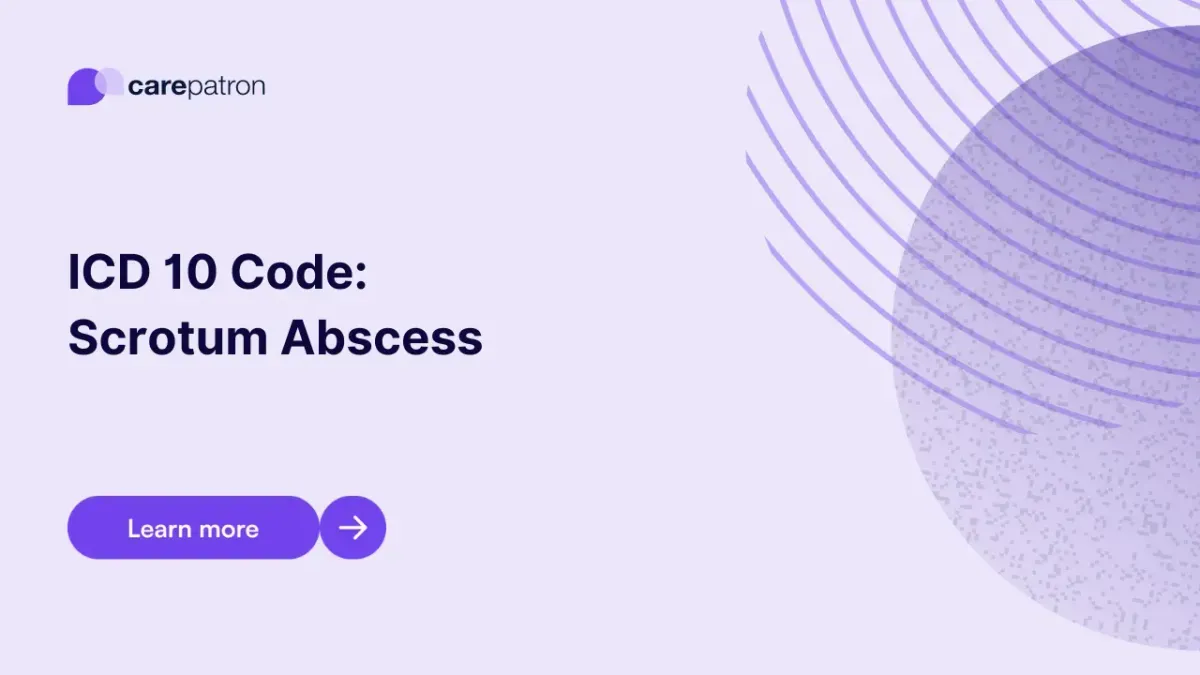
Scrotum Abscess ICD-10-CM Codes
Read this short guide and learn about scrotum abscess ICD codes you can use.
Use Code
Commonly asked questions
As of now, no. It’s best to use the two we listed above.
Healthcare professionals will conduct numerous tests, including physical examinations, blood tests, ultrasounds, urine tests, and even CT scans.
It depends on the cause. Antibiotics are the most basic way to treat these, alongside resting, using ice, and pain relievers. If the abscess is caused by cancer, chemotherapy and/or radical inguinal orchiectomy (removing an affected testicle and spermatic cord) are the best choices.
EHR and practice management software
Get started for free
*No credit card required
Free
$0/usd
Unlimited clients
Telehealth
1GB of storage
Client portal text
Automated billing and online payments
